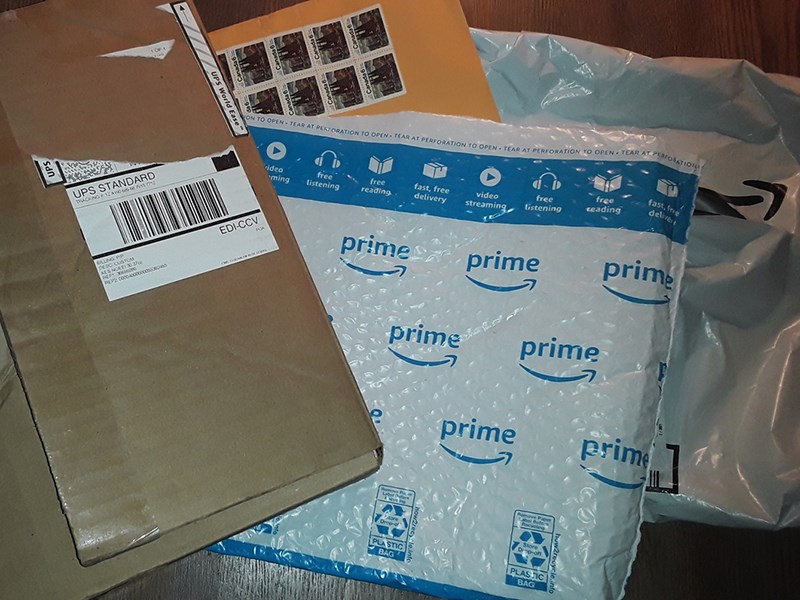If more packages are being delivered to your door these days, you’re likely not alone. Online shopping is growing in popularity, so you might find your recycling bin filling up quicker and your trips to the recycling depot more frequent.
The good news is most delivery packaging is accepted at depots. The more challenging task is to curb our online buying habits.
When it comes to delivery packaging, there are a few materials that are not recyclable through local depots, namely: envelopes with bubble wrap interiors but paper exteriors, and any foam (polystyrene) that is “squishy” (like packing peanuts, thin sheets of foam and sometimes solid blocks of foam).
If you can’t reuse these types of envelope or foam, then they are, unfortunately, garbage. Recyclers who want to go the extra mile can remove the “windows” from all their envelopes, as plastic is considered contamination in the paper recycling stream.
More and more online companies are making a name for themselves because of their care for the earth. You can look for ones that prefer paper packaging or the newer mushroom-based foam alternative packaging.
Nowadays, crushed, shredded, or molded-pulp paper packaging is used to cushion products during transport instead of foam. Multinational companies such Dell computers and IKEA are starting to use a mushroom-based packaging from Ecovative that looks a lot like foam, but only takes a few weeks to break down instead of hundreds of years. The only trick is you need to place this bio-based foam in the compost rather than the recycling, where it would lower the quality of the recycled pellets.
While “squishy” foam is not recyclable, foam that is “crumbly” when you break it is accepted at recycling depots. During processing, it is slowly heated, which removes the air (over 90 per cent of the volume) and the remaining dense plastic goo is then transformed into construction materials like crown moulding and picture frames.
Stickers, tape and staples, surprisingly, do not need to be removed from cardboard before they are dropped off for recycling. The recycling process separates these from the cardboard and they are then sent to the landfill. It is recommended that you remove them if you are using these as garden weed suppression, though, to avoid spreading plastic through your lawn and amid your vegetable patch.
If you’re ever in doubt about whether something is recyclable, depot staff members are available to help steer you to the right bin. Also, there are now a few online resources available. Check out City of Powell River’s Waste Wizard, an online search tool for local recycling. The city’s Waste Wise Guide has gone virtual as of this year, although paper copies are still available through Let’s Talk Trash and at city hall. These guides contain Recycle BC’s list of accepted items, along with a recycling directory for additional recycling programs available in town. Find the online guides at LetsTalkTrash.ca.
We all know the urge to shop can arise out of boredom, loneliness or effective marketing ploys. If you’re attempting to reduce online shopping habits, set a rule that you will wait 24 hours between impulse and purchase. You can also find unique ways to avoid buying new items through borrowing, thrifting, repairing or repurposing instead.
Have fun thinking outside the shopping “cart.”
Let’s Talk Trash is qathet Regional District’s waste-reduction education program. For more information, email [email protected] or go to LetsTalkTrash.ca.



